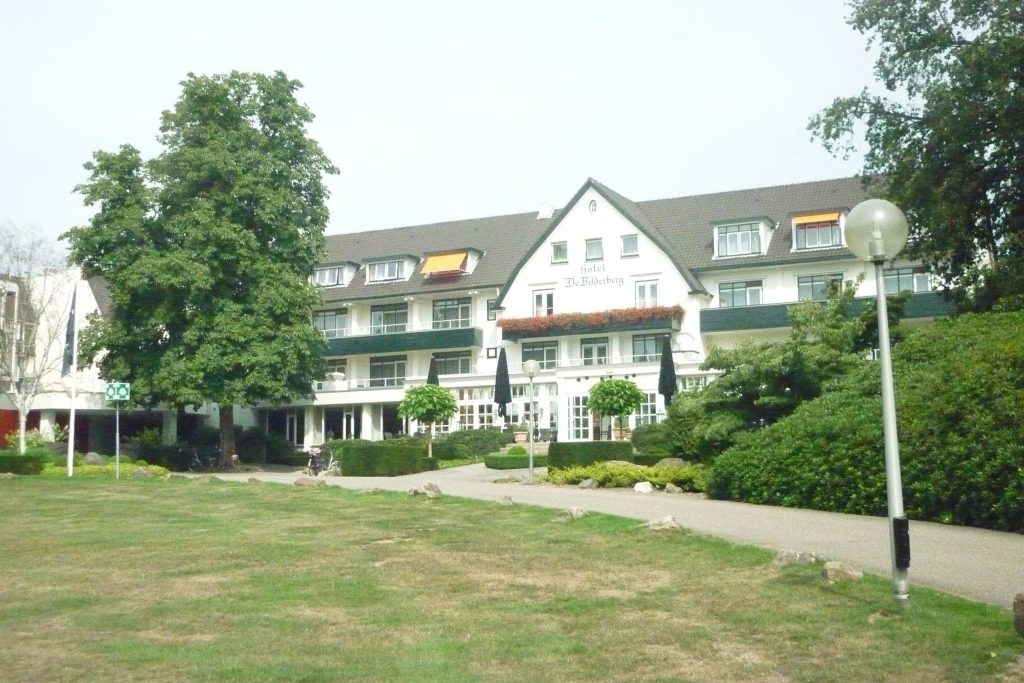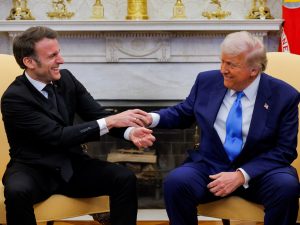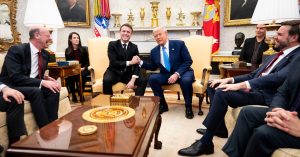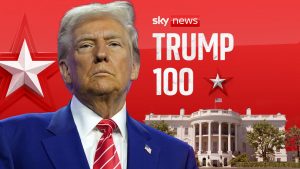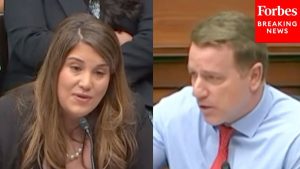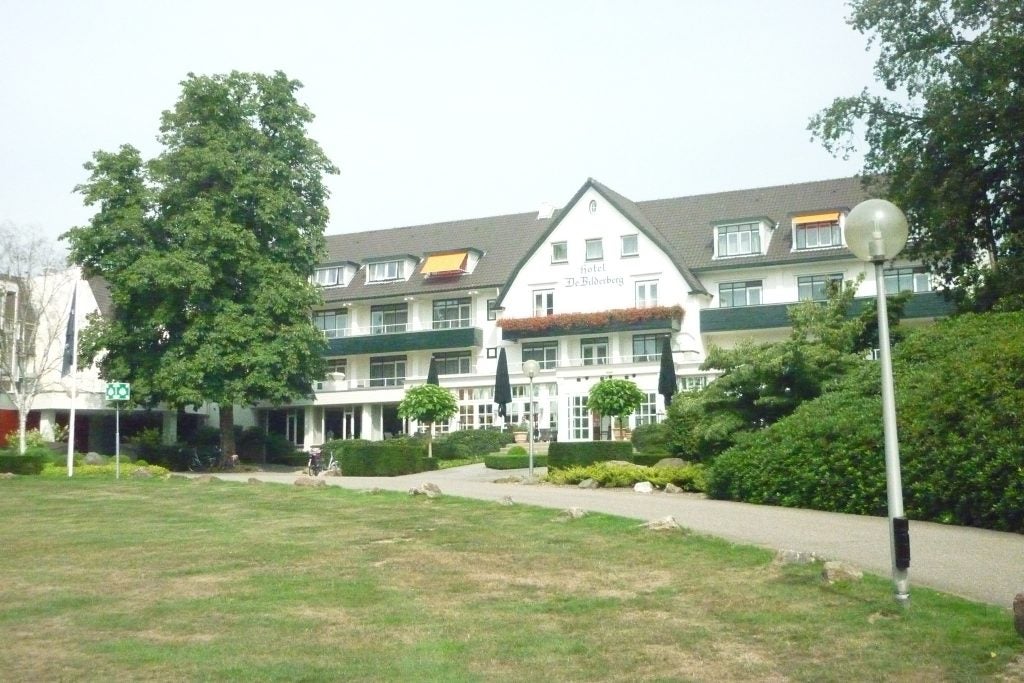
GJIA: You have conducted extensive research on the Bilderberg Group. What is Bilderberg, and who are some of its members? What has the group accomplished?
LK: Bilderberg is an elite, informal private elite network of hundreds of influential business people, politicians, and intellectuals, primarily from Western Europe, the United States, and Canada. Since its beginning in the early 1950s, Bilderberg has pursued two main objectives: promoting European integration and trans-Atlantic cooperation.
The most visible part of Bilderberg’s activity is its highly exclusive and confidential annual conference, which usually lasts three days. The meetings serve as a forum for networking and debate on political and economic issues. There is a formal program, but private conversations on the sidelines of the event are also important.
In its early phases, around seventy individuals attended the Bilderberg meetings, but in recent decades the number of participants has nearly doubled. The network has central participants who are regularly invited and peripheral members who are only invited once.
Members of Bilderberg’s steering committee and other frequent high-profile participants include, among others, Eric Schmidt (Google), Henri de Castries (Axa), Ana Botín (Banco Santander), Christine Lagarde (International Monetary Fund), and David Petraeus (Central Intelligence Agency). Prominent former members, now deceased, include Henry Kissinger, James Wolfensohn, and Peter Sutherland.
Bilderberg’s biggest accomplishment is arguably its contribution to introducing European common currency. Etienne Davignon, a former Bilderberg chairman, hinted that the Bilderberg meetings facilitated the creation of the euro. Davignon and fellow Bilderbergers Giovanni Agnelli and André Leysen sat on the governing board of the Association for the Monetary Union of Europe. One of the architects of the Euro, Tommaso Padoa-Schioppa, served on Bilderberg’s steering committee. Before their appointments, every president of the European Central Bank attended at least one Bilderberg conference. The first president, Wim Duisenberg, belonged to Bilderberg’s steering committee and served as the network’s honorary treasurer. Bilderberg’s treasurer effectively became the Eurozone’s treasurer.
GJIA: According to the group’s own website, the goal of the Bilderberg Meetings is “to foster dialogue between Europe and North America,” but they have also featured participants from non-Western states like China, Turkey, and Russia. In your opinion, why are the meetings closed to the public, and why do they continue to receive little public attention?
LK: It should be specified that there are differences in the status of participants from non-Western states. Attendees from Turkey, a NATO member, have always been a regular part of Bilderberg. Four Turks were even included in Bilderberg’s steering committee, and three conferences took place in Turkey. In contrast, Russians and Chinese were invited to Bilderberg only after the Cold War, and in small numbers—they were more guests than full participants. The same is true for Israelis and Central Europeans, with the exception of Sikorski, the Polish foreign minister.
Bilderbergers defend the private character of the meetings with the argument that the discussions must be off record to allow participants to speak openly. I understand this argument and accept it to some extent. After all, everyone wants to speak with others in private at times, so why shouldn’t elites be allowed such an opportunity? On the other hand, however, the lack of transparency at Bilderberg creates space for backroom politics, lobbying, conflicts of interests, cronyism, and even collusion or corruption. For example, the first Bilderberg chairman, Prince Bernhard of the Netherlands, was implicated in the Lockheed Martin bribery scheme disclosed in the 1970s.
Bilderberg continues to receive little public attention for two main reasons. First, average citizens on both sides of the Atlantic are preoccupied with more imminent day-to-day problems. Second, for a long time, most agenda-setters from mass media and academia also paid little attention to Bilderberg. As a result, the topic was almost monopolized by conspiracy theorists, which in turn made it rather toxic for mainstream researchers. Bilderberg became a sensitive, controversial issue.
GJIA: What roles do Bilderberg members (“Bilderbergers”) currently hold in international institutions, where many of them have been appointed to leadership positions?
LK: I concluded my research in 2023 and at that time Bilderbergers—António Guterres, Kristalina Georgieva, Jens Stoltenberg, and Ursula von der Leyen—headed the United Nations (UN), International Monetary Fund (IMF), NATO, and European Union (EU). In 2024, one personal change occurred, namely at NATO, where the office of general secretary was given to Mark Rutte, who previously appeared at many Bilderberg conferences.
Stoltenberg first attended Bilderberg, later was elevated to NATO leadership, and then overtook Bilderberg’s (co)chairmanship. Peter Carrington previously followed the same career path. It seems that there has been some revolving door between Bilderberg and NATO.
A similar revolving door appears to be between Bilderberg and the EU, especially the European Commission, as suggested by the career trajectories of, i.e., Davignon, José Barroso, or Connie Hedegaard.
GJIA: Is there evidence that membership in the group can help politicians advance their careers in international organizations?
LK: In the public domain, I found some circumstantial evidence suggesting that leaders often attend Bilderberg before they rise to leadership positions. I want to highlight two examples—von der Leyen and Wolfensohn.
von der Leyen attended four Bilderberg conferences before she began her first presidency of the European Commission in 2019. But von der Leyen’s appointment was initially unexpected. Manfred Weber was expected to be the new president for his successful leadership of the European People’s Party in European parliamentary elections. However, Weber was less well-connected, and this was probably one of the reasons why EU politicians finally chose von der Leyen. Politico put it bluntly: “Bilderberg. Davos. Munich…von der Leyen …has quietly built an extensive international network in politics and business—connections that won her the nod for the EU’s top job.”
Wolfensohn headed the World Bank from 1995 until 2005, thanks in part to Vernon Jordan, a powerful figure in the U.S. Democratic Party and member of Bilderberg’s steering committee. Jordan also helped to advance the career of Bill Clinton. As The Guardian put it, Jordan “is widely credited with pulling strings to get Wolfensohn his job as president of the World Bank,” since Jordan was “Clinton’s close friend, his unelected unofficial adviser…who nurtured him to the White House.” These three men were all Bilderbergers. Wolfensohn appeared at the Bilderberg conference for the first time in 1985, when Jordan also attended. The two went on to meet again at around twenty subsequent Bilderberg conclaves. Jordan also helped to ensure that Clinton was invited to the Bilderberg conference in 1991, two years before he won the U.S. presidential election. Clinton subsequently installed Wolfensohn into his leadership position at the World Bank.
Bilderberg is not the only elite international club that can also help boost careers, including those in national politics. U.S. President Jimmy Carter belonged to the Trilateral Commission, which has partially overlapping membership with Bilderberg. He installed many Trilateralists like Zbigniew Brzezinski and Walter Mondale into various high posts in U.S. politics and the Federal Reserve. Moreover, at least three World Bank presidents—Robert McNamara, Alden Clausen, and Barber Conable—were Trilateralists. Therefore, some critics labeled the Trilateral Commission as a “springboard for elevation to political power,” as Stephen Gill put it in his pioneering monograph on the Trilateral Commission.
GJIA: Drawing on your previous work, why do you think Bilderberg satisfies the neo-Marxist concept of “transnational capitalist class”?
LK: There are three main academic proponents of the concept of the transnational capitalist class (TCC): William Robinson, Leslie Sklair, and William Carroll. They all claim that “elite policy groups” like Bilderberg and the Trilateral Commission contribute to the formation and coordination of the TCC.
The TCC and Bilderberg have promoted the same or similar agendas that revolve around inter- or supra-nationalism (integration processes) and free trade/free market policies. I think that for operationalization purposes, Bilderberg can serve as a proxy for a trans-Atlantic TCC, especially when we define TCC broadly like Sklair. In his view, TCC comprises four mutually permeable fractions: corporate, political, technical, and consumerist. He sees the corporate fraction as dominant, and this is corroborated by the changing composition of Bilderberg meetings.
In recent decades, Bilderberg has mirrored the global power shift from the political to the economic sphere and to transnational capital. In the 1950s, politicians, diplomats, and other public officials formed the majority of Bilderberg participants. Today, most participants of Bilderberg are CEOs and corporate high representatives. Businesspeople also prevail in Bilderberg’s steering committee. Since 2012, Bilderberg conclaves have been chaired by French insurance executive de Castries, while previous chairmen were all (ex) politicians.
GJIA: Given the global prominence of many Bilderbergers, should the public be at all concerned about Bilderberg’s elitism?
LK: Generally, I do not want to demonize Bilderberg, as many critics do. But I also do not want to whitewash it as some advocates tend to do. Both these extremes are misleading, and we need to find a balanced position in between, although it is not easy.
Elitism is not the only problematic aspect of Bilderberg, and it isn’t confined solely to Bilderberg. Every exclusive elite club that handles political issues poses a challenge to the ideals of participatory democracy. There are legitimate concerns each time politicians and businesspeople meet behind closed doors.
Elites have disproportionate power, and by extension, disproportionate responsibility. Elites’ fraternizations, including those at Bilderberg, enhance their power. In 2016, Bilderberg organizers surprisingly invited left-wing economist Guy Standing, whose books warned about the dangers of rentier capitalism and the underclass, dubbed the “precariat.” Since 2016, have Bilderbergers displayed any serious attempt to mitigate the trends criticized by Standing? I do not think so.
We should be concerned about the overall gap between elites and the general public, especially as this gap is growing, as many observers assert. Elite summits are part of a broader and deeper problem of complex social inequalities. I agree with Diana Kendall that elite clubs provide their members advantages, mainly in the form of social capital, over non-members. Thus, elite clubs contribute to inequality, estrangement, and mistrust between elites and everyone else.
Many Bilderbergers also attend the World Economic Forum (WEF), which is less elitist and secretive than Bilderberg. Still, there are reasons for public concern about WEF as well. For instance, WEF supported the universal obsession with competitiveness despite strong criticisms. Is it really in humanity’s best interest to accept such market discipline?
This brings us back to the TCC, and to the public’s laments that elites promote largely self-serving policies. Let me finish with a very poignant quote from David Rothkopf’s book Superclass: “the aligned interests of large segments of the superclass often produce the same outcomes that dark conspiracies might: a world that often seems to favor those who need to favor the least, that empowers the powerful and ignores even the most urgent needs of the weakest.”
. . .
Lukas Kantor is a Czech researcher and academic expert on the Bilderberg Meetings, formerly with the Faculty of Social Sciences at Charles University in Prague, where he published two articles on Bilderberg. Kantor also served at the Press Department of the Czech government, and has worked in journalism and public relations.
This transcript has been lightly edited for clarity and length.
Interview conducted by Owen Huang and Harry Yang.
Image Credit: De Bilderberg, CC BY SA 3.0, via Wikimedia Commons



